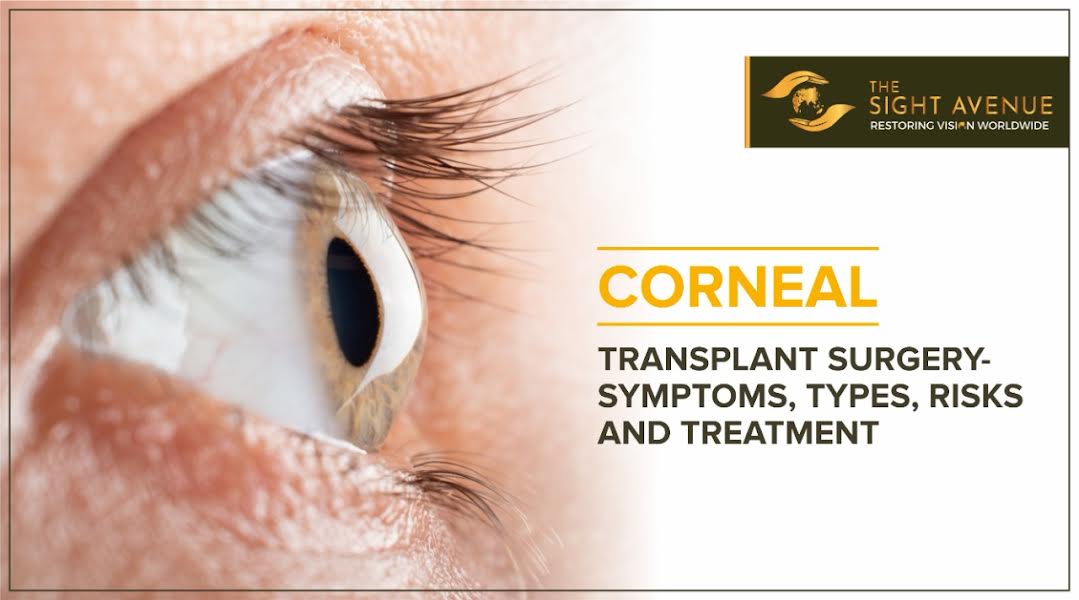Cataract Surgery: Types, Symptoms, Causes & Common Challenges

Your vision is essential for experiencing the world around you. Imagine not being able to see clearly or struggling with cloudy vision. It all happens when you feel early stage cataract symptoms; cataract often occurs when the person gets older or crosses middle age. If you have crossed or are about to cross your middle age, then this blog may help you to understand cataracts' condition properly, from cataracts symptoms to common challenges.
Understanding Cataracts
Imagine cataracts like a hazy curtain on the lens of your eye—think of this lens as the clear window behind your pupil (the dark circle in your eye). This lens has very important work while seeing an object because it focus the light into the back of your eye so that you can see things clearly, like the lens in a pair of glasses
But when cataracts show up, it's like someone smeared that window with a foggy mist. Everything you look at becomes blurry and not so clear. Cataracts are often connected to getting older, but they can also happen because of other reasons.
Types of Cataracts
Nuclear Cataracts: These are like cloudy spots right in the center of the eye's lens. They usually happen as you get older and can make it hard to see things up close or far away.
Cortical Cataracts: These cataracts look a bit like spokes on a wheel. They start at the edge of the lens. They can make it tricky to see at night, cause glare, and make reading tough.
Posterior Subcapsular Cataracts: A posterior subcapsular cataract begins as a small spot, generally near the lens's back, in the light. A posterior subcapsular cataract often impairs reading. You may also see halos surrounding lights at night and lose vision in bright light.
Congenital Cataracts: A congenital cataract is a clouded eye lens at birth, making vision difficult. The lens in your eye focuses light. One or both eyes can have congenital cataracts.
Cataract Symptoms
With the help of these common cataract symptoms and signs, you may recognize cataracts condition:
- Things look fuzzy or cloudy.
- You're sensitive to bright lights and see glares.
- It's hard to see well at night.
- Colors seem less lively than before.
- You see double in one eye.
- You need to change your glasses prescription more often.
Are you facing any of these cataract symptoms? Then, you should consult with a healthcare professional for cataract eye surgery.
Causes of Cataracts
Cataracts develop for many reasons. Age is the main cause, although additional factors can raise your risk:
Ultraviolet (UV) Light: UV radiation from prolonged sun exposure can raise cataract risk.
Diabetes: If a person is already facing diabetes then there is more chance to develop cataracts.
Smoking: Smoking damages your lungs and increases cataract risk. It exposes your eyes to harmful chemicals.
Poor Nutrition: Not eating well and lacking vitamins and antioxidants can increase risk.
Certain Medications: Steroids can increase cataract risk.
Uncover a more vibrant tomorrow through expert guidance from the top-notch ophthalmologists at The Sight Avenue for cutting-edge Cataract Surgery in Delhi.
Common Challenges with Cataract Surgery
Like any medical procedure, cataract surgery is safe, but there are risks. You must discuss these factors with your eye doctor before cataract eye surgery:
Other Eye Conditions: Eye problems, including glaucoma or macular degeneration, can affect operation success.
Chronic Health Conditions: Diabetes and high blood pressure can increase surgery complications.
Medications: Tell your surgeon about your medications, especially blood thinners. Some medicines impair surgery.
Previous Eye Surgery: Other eye operations like LASIK or PRK may affect cataract surgery.
Complex Cataracts: Surgery may be harder if your cataracts are advanced or your pupils are small.
Infection Risk: Cataract surgery can cause infection; however, the risk is modest.
After Surgery Care and Recovery
Most cataract surgery patients recover fast and painlessly. Eye medications to prevent infections and edema are likely. You must follow your surgeon's eye care instructions following surgery. You may need to avoid intense activity, avoid touching your eyes, and use protective eyewear.
Your vision should improve as your eyes heal. Most cataract surgery patients see much better, which is great!
Conclusion
Cataract surgery can clear your vision. Cataract symptoms, causes, and risk factors should be discussed with an eye doctor if you suspect them. Cataract eye surgery is safe and successful, and many patients have clear eyesight again. Your eyes are priceless, and cataract surgery can restore vision. Discover a brighter future by consulting the best eye doctors at The Sight Avenue for Cataract Surgery in Gurgaon.
Recent Post








